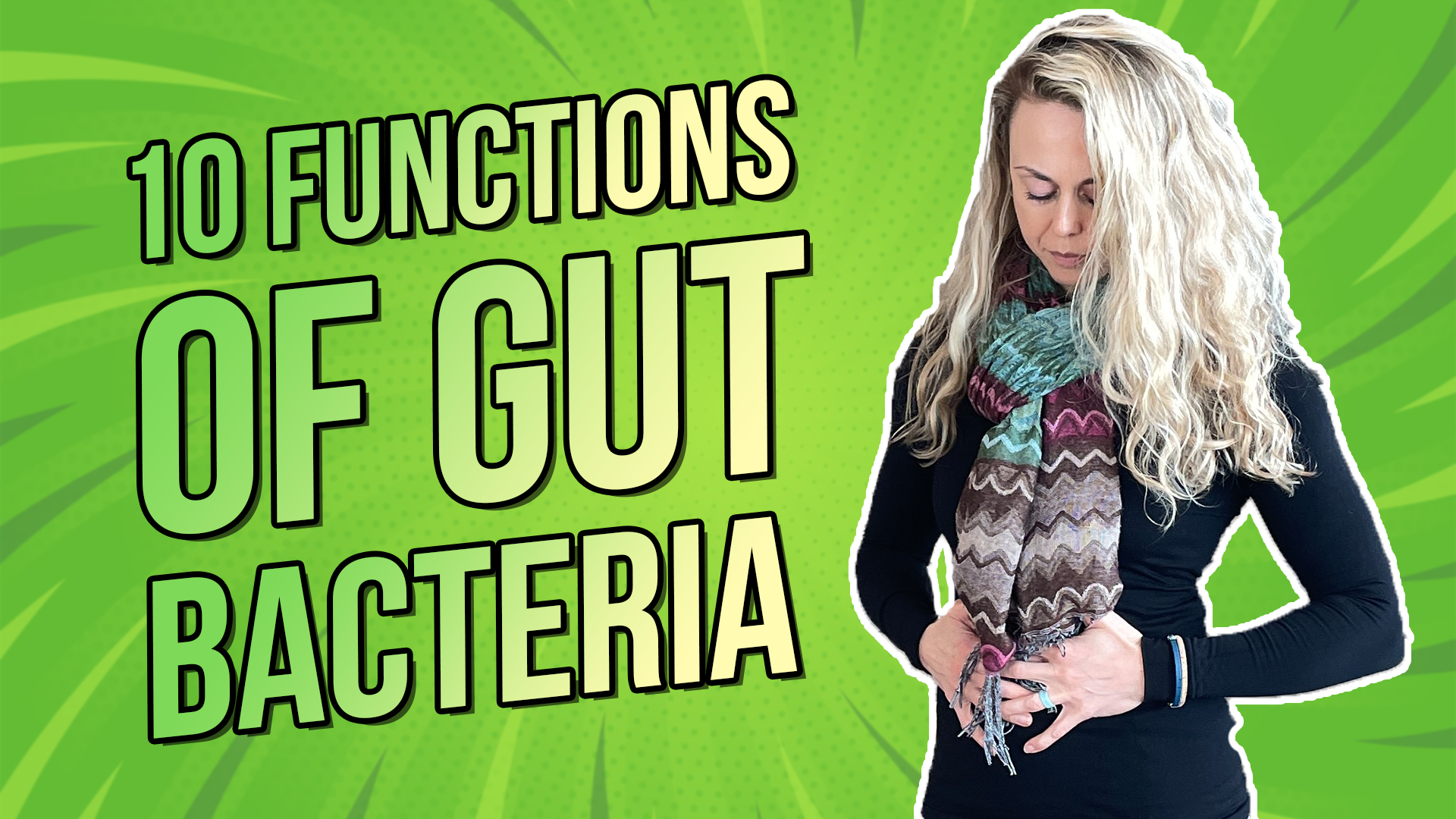Everyone talks about the microbiome and gut bacteria, but why is it so important? What are the actual functions of the bacteria?
Before we get into the 10 functions of your gut bacteria, let’s talk a little bit about the anatomy. The small intestine which is 18 to 25 feet of our intestine, should be a relatively sterile environment. The large intestine, however, is where we house the majority of the bacteria, especially the beneficial bacteria. When we get something like a small intestinal bacterial overgrowth (SIBO), it is in essence where the bacteria have now been relocated and overpopulated into the small intestine where it is not supposed to be. We have trillions of bacteria in our gut, and we have a thousand different species. There are also 5,000 different bacterial strains. With that said, everyone is unique, however, there are combinations of collections of bacteria that are present in healthy individuals.
Rather watch or listen than read?
10 Functions of Gut Bacteria
So, let’s get into the 10 functions of gut bacteria and why it is so important that you have an optimal balance.
- Nervous System Modification
This is a really powerful function of our gut bacteria. We want to think of three key neurotransmitters which are essentially are chemical messengers that are formed from the gut bacteria.
- Serotonin: This is the key hormone that stabilizes our mood, feelings of well-being, and happiness. Ninety percent of our serotonin is located in our gut.
- Dopamine: Fifty percent of our dopamine, our feel-good hormone, is located in our gut.
- GABA (gamma aminobutyric acid): This is an inhibitory neurotransmitter that decreases feelings of fear and anxiety and produces a feeling of calm.
All of these are associated with this amazing gut-brain connection.
2. Breaks Down Food Compounds
Essentially, the gut bacteria metabolize the food and medications that we consume.
3. Pathogen Resistance
Think of our gut bacteria as one of our protective mechanisms. It will protect us from pathogens and toxins.
4. Protection Against Any Epithelial Injury
It protects against infections, just like it does with toxins and pathogens.
5. Bone Density Modulation
The gut bacteria can influence our bone density.
6. Promotion of Fat Storage
The gut bacteria can influence the hormones that store fat. Additionally, the Standard American Diet (SAD), that is, the western diet, is influencing gut bacteria, which has been linked to obesity.
7. Immune System Stimulation
Seventy percent of our immune system lies within our gut. So when we have optimal gut bacteria, this gut bacteria is influencing how our immune system responds to foreign invaders, toxins, and pathogens that they might be exposed to.
8. Promotion of Angiogenesis
When we have more blood vessels in the gut, this can be very powerful for future advances in treatments for gut infections.
9. Biosynthesis of Vitamins and Amino Acids
Water-soluble vitamins are plentiful in the diet, but also can be synthesized by the gut.
10. Metabolism of Therapeutics
This is ultimately how we process our medications and supplements. So keep in mind, that if you are planning to take things, you have to make sure that your gut is optimized so that you can metabolize these appropriately.
Now that you know the functions of gut bacteria, you know how important it is to optimize it. You can do that through numerous things, and you can see some other videos for different suggestions to optimize your gut health. But, we do want to think about everything from prebiotics, the fiber that the probiotics feed on, probiotics whether that’s through fermented food or supplementation, and then, of course, stress management, a high-fiber diet with 25 to 35 grams a day, drinking plenty of water, eating a whole, natural food diet to ensure that you are optimizing the diversity of your gut—that is one of the key things that your gut loves, diversity.
Reach out for a 15-minute FREE discovery session to see how we can help you on your journey.
For more content, make sure to subscribe to my YouTube channel here.
Other things that may interest you:
IS YOUR GUT PREVENTING YOUR WEIGHT LOSS?


